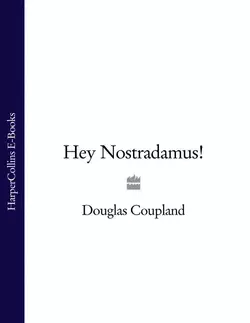Hey Nostradamus!

Douglas Coupland
Тип: электронная книга
Жанр: Современная зарубежная литература
Язык: на английском языке
Стоимость: 232.15 ₽
Статус: В продаже
Издательство: HarperCollins
Дата публикации: 16.04.2024
Отзывы: Пока нет Добавить отзыв
О книге: The story of one family piecing itself back together after a tragic highschool shooting, Hey Nostradamus! is Douglas Coupland’s most soulful, piercing and searching novel yet.Pregnant and secretly married, Cheryl Anway scribbles her last will and testament – and erie premonition – on a school binder shortly before a rampaging trio of misfit classmates gun her down in a high school cafeteria. Overrun with paranoia, teenage angst and religious zeal in the ensuing massacre′s wake, this sleepy Vancouver neighbourhood declares its saints, brands its demons and finally moves on.But for a handful of people still reeling from that horrific day, life remains perpetually derailed. Four dramatically different characters tell their stories in their own words: Cheryl, who calmly narrates her own death; Jason, the boy no one knew was her husband, still marooned ten years later by his loss; Heather, the woman trying to love the shattered Jason; and Jason′s father Reg, a cruelly religious man no one suspects is still worth loving. Each wrestles with God, self-defeat and a crippling inability to hold on to those they love.Coupland′s most surprising and soulful novel yet, rich with his trademark cultural acuity and dark humour, Hey Nostradamus! ties themes of alienation, violence and misguided faith into a fateful and unforgettable knot from which four people must untangle their lives.